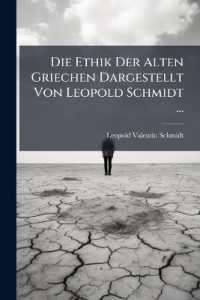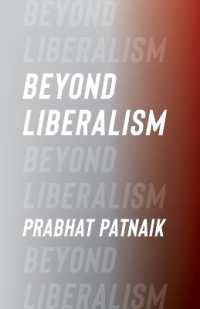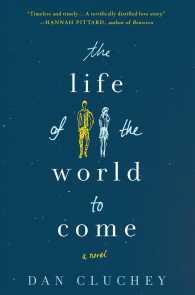- ホーム
- > 洋書
- > 英文書
- > History / World
Full Description
Amazons and giants, snakes and gorgons, centaurs and gryphons: monsters abounded in the ancient world. They raise enduring philosophical questions: about chaos and order; about divinity and perversion; about meaning and purpose; about the hierarchy of nature or its absence. Del Lucchese grapples with the concept of monstrosity, showing how ancient philosophers explored metaphysics, ontology, theology and politics to respond to the challenge of radical otherness in nature and in thought.
Contents
Introduction
1. The Myth and the Logos
1.1 Order and Chaos
1.2 Mythical Battlefields: Monstrosity as a Weapon
1.3 Causality and Monstrosity: Challenging Zeus
2. The Pre-Platonic philosophers
2.1 Anaxagoras: A Material Origin for Life and Monstrosity
2.2 Empedocles: Wonders to Behold
2.3 Democritus: Agonism within Matter
3. Plato
4. Aristotle
5. Epicurus and Lucretius
5.1 An Immanent Causality for an Infinite Universe
5.2 Zoogony, Monstrosity, and Nature's Normativity
5.3 Concourses of Nature
5.4 Lucretius's Impact on the Augustan Age
6. Stoicism
6.1 Nominalism
6.2 Good and Evil, Beauty and Ugliness
6.3 Providence, God and Teleology
7. Scepticism
7.1 The Tropes and the Critique of Essentialism
7.2 To What Purpose?
8. Middle and Neoplatonism
8.1 The Material World and the Rediscovery of Transcendence
8.2 Demons
8.3 The World Order
Bibliography
Index Locorum
Index Verborum
Index Rerum
Index Nominum








